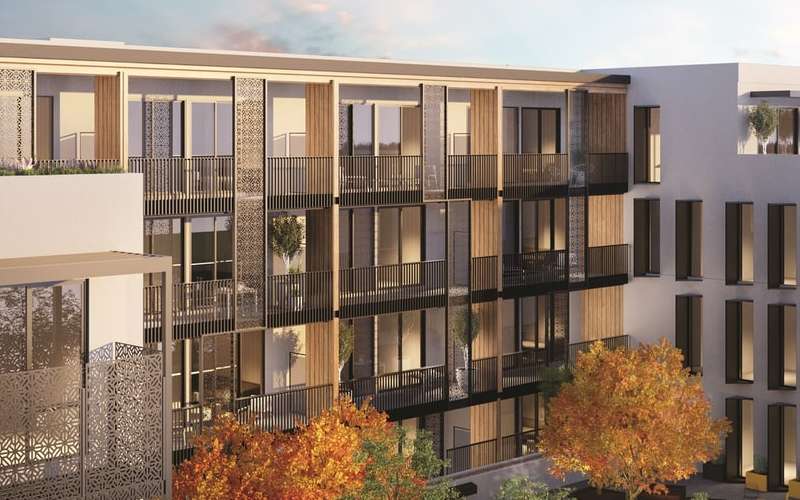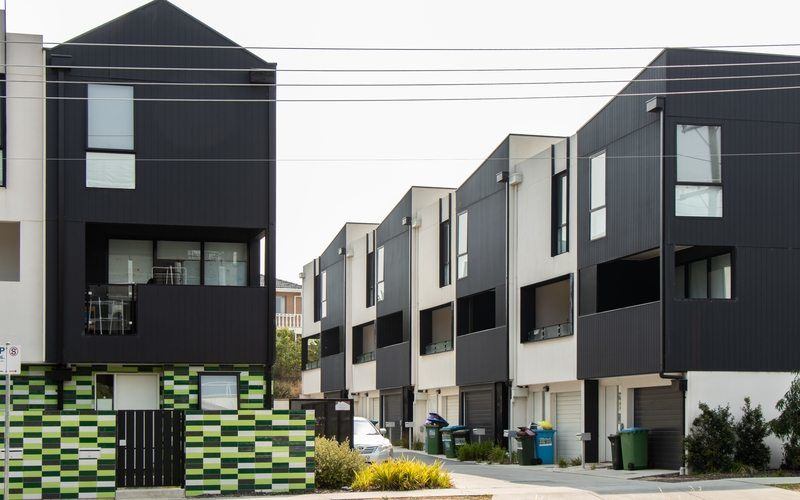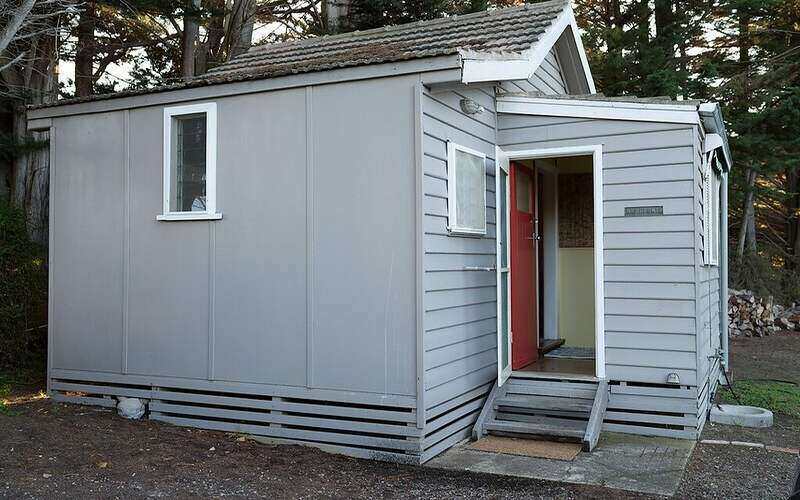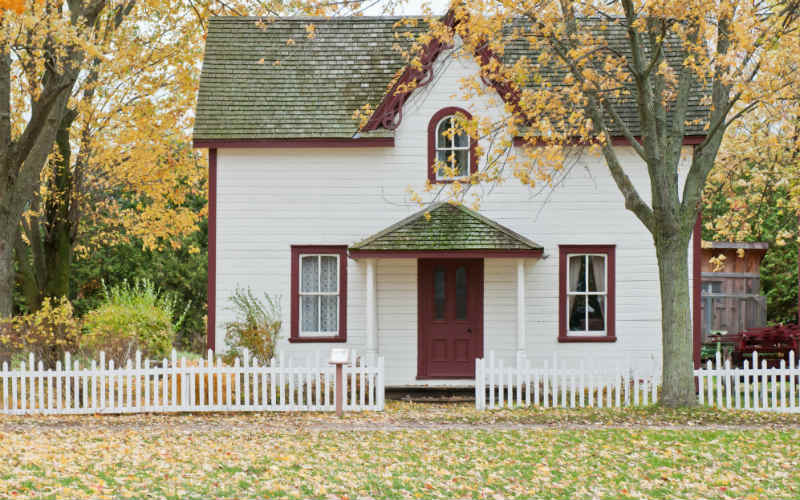If you're looking to see whether you should buy an investment property in 2021, check out our article here.
With COVID-19 shutting down borders and decimating the global economy, it’s easy to forget the year started with crippling drought and half the country on fire.
Australia now looks to be heading for a technical recession, if not a full-blown one, with unemployment tipped to hit 10% and wage growth stunted to Great Depression levels.
As a result of the pandemic, the Federal Government announced a ban on in-person auctions and open houses, and with consumer confidence at record low levels, the housing market is tipped to grind to a halt, after a strong rebound in values in the latter half of 2019.
All of these issues have numerous economists predicting a 30% decline in house prices in a worst-case scenario with most agreeing prices will fall by at least 10%.
So if this is the case, could this be a buying opportunity for property investors? Or does the unprecedented economic landscape and market conditions make for too much of a risk?
What makes 2020 a unique year for investing in property?
All investment comes with inherent risk. Although property is considered a more safe investment strategy than shares, for example, it still comes with the possibility you could lose your money. However, 2020 is arguably one of the most extraordinary years for the Australian property market in history, and as a result, could carry more risk.
Here are some of the factors which make 2020 a unique year for investing in property:
House prices could drop up to 30%
In a report released in April, data house SQM Research said a 30% decline in dwelling prices by the end of 2020 is entirely possible, with overvalued cities like Sydney and Melbourne the worst hit.
Meanwhile, NAB outlined two scenarios in its half-year report released in late April: one where prices would fall a cumulative 30% over the next two years and another where prices would fall by 10% in 2020 before marginally rebounding in 2021.
The thought of seeing their investment decline by 30% could see many investors run for the hills, but Head of Research at buyer’s agency Propertyology Simon Pressley told Savings.com.au he expects a strong rebound in the housing market.
“The most sustainable growth will occur in locations which have the combination of sub $500,000 median house prices, a diverse local economy, locations that haven’t seen much price growth during the last decade, and where the housing supply pipeline is contained,” Mr Pressley said.
“A few months locked up in a cocoon doesn’t detract from these principals.”
Property investment adviser Niro Thambipillay from investmentrise.com.au told Savings.com.au the reports could be misleading due to so many people postponing selling and buyers adopting a wait and see approach.
“The fewer sellers and buyers is resulting in properties being sold for less than what they were sold for, as recently as even 4-6 weeks ago, because only highly motivated or desperate vendors are listing their properties,” Mr Thambipllay said.
“So although the data might show a drop in prices, it is not an actual drop due these unusual times.”
Michael Sloan of Better Homes and Gardens Real Estate echoed Mr Thambipillay’s sentiments, telling Savings.com.au only overvalued areas would see a significant drop.
“I think prices in somewhere like Melbourne for example, down the lower end of the market won’t actually change too much,” Mr Sloan said.
“The higher end of the market will see a drop though.”
Ban on open houses and in-person auctions
At the end of March, Prime Minister Scott Morrison announced a ban on open houses and in-person auctions, as part of social distancing measures.
Auctions are integral to how the Australian property market performs, evidenced by 2,539 homes taken to auction across the capital cities in the week just before the ban, the second busiest week of the year.
Much of what turned the property market around in the latter half of 2019 was high auction clearance rates, driven by strong results in Sydney and Melbourne.
Additionally, open houses usually attract large groups of people, driving interest and popularity in a property, and consequently, offers.
However, Mr Pressley said the ban represented a rare opportunity to sort out the buyers who were and weren’t serious.
“Generally speaking, the positives for the industry from these measures include that it sorts out the genuine buyers from the tyre-kickers and it also forces real estate professionals to embrace technology,” Mr Pressley said.
Mr Thambipillay said switched on investors could actually benefit from the restrictions.
“The shrewd investor will see opportunity as they are not competing directly with others buyers, like at an auction,” Mr Thambipllay said.
“This will certainly give them opportunity to grab a good deal. It is when sentiment is down that opportunities abound for the shrewd investor.”
Although the real estate industry has adapted impressively to the ban, with online auctions and private inspections, auction clearance rates and listings have plummeted.
Rent reductions, waivers, and deferrals
The coronavirus has seen the government send the economy into hibernation, shutting down much of the hospitality, tourism and retail sectors.
As a result, millions of Australians are experiencing financial hardship and can no longer meet their rental obligations.
In an effort to assist these people, a number of states and territories have announced support measures to assist tenants and landlords alike through the crisis.
We won’t get into all of the measures here, but they include things like rent deferrals, rent waivers, rent reductions, and bans on rent increases,
In many of these cases, it's the landlord who has to foot the bill, especially in the case of waivers and reductions.
Furthermore, in some cases, granting these exemptions could mean you won’t be covered under landlord insurance.
But Mr Sloan said tenants can’t simply decide to not pay rent due to the pandemic.
“Renters still need to pay rent if they haven’t been affected by COVID, you can’t just not pay rent,” Mr Sloan said.
“You have to have a good reason to not do so. If you’ve got $5,000 in the bank or your rental amount is less than 30% of your income, you should be paying your rent.”
You can check out a full list of each state’s support measures here.
Moratorium on evictions
Prime Minister Scott Morrison, in conjunction with state leaders, announced a moratorium on residential and commercial evictions for six months, at the end of March.
The move was almost universally welcomed, with no one wanting to see someone homeless due to the economic fallout from COVID-19.
However, the Australian property market functions so that if someone doesn’t pay rent, landlords are entitled to kick them out.
And although some states have brought in specific measures to ensure only those experiencing financial hardship can’t be evicted, there is anecdotal evidence that some tenants are abusing the order.
Should such an instance occur, landlords would be losing money every day they can’t get rid of a tenant who won’t play by the rules or come to the table to forge an amicable agreement.
But Mr Thambipillay said the moratorium shouldn’t matter for serious investors if they’ve done their research on the suburb.
“The rent waivers and deferrals across the states should not be an issue when buying an investment property,” he said.
“If an investor buys in a suburb with a tight vacancy, they will be fine and should be able to choose tenants with jobs in industries that have less downside exposure to Corona.”
Mr Pressley said from an investor’s perspective, his buyer’s agents were conscious of the moratorium but wouldn’t let it dominate the decision-making process.
“We’ll ask a few questions about the tenant to make an informed decision about near-term income security,” he said.
“Importantly, our priority for good investment decisions always has the selection of the individual city at the top of the list, followed by street selection, structural integrity of the asset, and the price we pay for the asset. We are not buying a tenant.”
Rental vacancies set to rise
A report from SQM Research found rental vacancy rates could rise from 2% to exceed 3%, a record high from when the data company first started the index in 2005.
A rise in vacancies would come from a stalling in underlying demand for accommodation, through near-zero migration combined with a reduction in existing tenancy demand, due to job losses, plus a sharp rise in empty 'Airbnb' accommodation.
As vacancy rates increase, rents will decrease in line with the reduced demand, diminishing potential returns for investors.
Mr Thambipillay said this only reinforced the importance of investors not buying a property without doing their due diligence.
“For example, buying a property in an area they know or like isn't sufficient,” he said.
“The biggest thing they need to look at is the vacancy rate for the suburb they intend on buying in.
“There are many suburbs that will have massive issues with getting tenants due to an oversupply of property, or more accurately, an undersupply of tenants as potential tenants are either out of work or move back in with family to navigate these tough times.”
A shift in investor behaviour
Houses have become more popular with investors than units, according to a study by MCG Quantity surveyors, a trend that could become more prominent after the pandemic subsides.
The study of 1,000 investment properties between January 2016 and December 2019 found the most popular property investment in 2019 were houses at 37.5%, followed by units at 33.7%.
In 2016-17, units were more popular at 47.2%, with houses making up 43.2% of purchases. The remaining percentages were mostly townhouses, granny flats and duplexes.
MCG Quantity Surveyors managing director Mike Mortlock told Domain, with more people working from home post-COVID, inner-city units would be less attractive to renters and investors.
“I would expect post-COVID that we’re still going to see a similar thing – the boutique developments have a little bit of a larger floor plan, they’re a little bit more quality, they’re going to be more in demand,” he said.
“I think investors are going to be chasing cash flow rather than looking at these lower yielding units.”
Record-low interest rates
It’s been almost a year since the Reserve Bank of Australia (RBA) started cutting the cash rate and after five cuts totalling 125 basis points, the central bank has said we have reached the bottom.
Additionally, the RBA implemented quantitative easing for the first time ever, which in theory, should also drive down interest rates, without an official rate cut.
While interest rates have been historically low for some time, it would seem home loans in Australia are now the cheapest they’ve ever been, and probably the cheapest they’ll ever be.
Should you buy an investment property in 2020?
Despite all of these unprecedented factors affecting Australia’s property market (and we’re not even halfway through the year) the expert consensus is 2020 presents a unique opportunity for shrewd investors.
Mr Pressley said the best time for someone to invest is always as soon as they can afford to.
“With eight capital cities plus some incredibly exciting opportunities within Australia’s 190 regional towns, investors in the essential commodity of shelter are spoilt for choice,” he said.
“Remove the blinkers, remove the emotion of the moment. Large parts of Australia currently have very low residential vacancy rates.
“This germ [COVID-19] doesn’t create new housing supply. Record low-interest rates of circa 3 percent, rental yields of around 5 percent, first home buyer incentives…the earliest buyers will benefit most from the significant bounce-back that’s just around the corner.”
Mr Sloan said housing was more essential than ever, and despite all the uncertainty due to the virus, now was a great time to invest.
“I think there is the opportunity for investors here, in that we are in an unprecedented time and the market is at a potential low,” Mr Sloan said.
Mr Thambipllay too believed there were plenty of opportunities available for good investment, but only for those who were experienced and educated.
“There will be some great opportunities for the astute investor but the naive investor will get burned if they don't do their due diligence, particularly with getting a tenant and getting the rent they expected,” he said.
“However, overall I am strongly bullish about the property market and believe we will reach new market highs in many areas once the pandemic is behind us.”
Director of Property Analytics and Buyer Advocacy Andrew Stone told Savings.com.au the housing market would prove difficult to navigate in coming months, regardless of where you are in Australia.
“But, history assures us that an equilibrium between supply and demand will eventuate, prices will stabilise in response, and a new growth cycle will ultimately emerge,” Mr Stone said.
“Nobody knows with certainty how long this crisis will last or how much house prices will be impacted…if you’re looking to pick the bottom of the market, monitor activity in the most expensive suburbs, as prices tend to change there first.”
Savings.com.au’s two cents
2020 has been a roller-coaster of a year that looks set to continue its wild run, but that doesn’t mean you should hold off buying an investment property.
There are a range of factors that suggest this year presents a historical opportunity for investors who are savvy and do their homework prior to investing.
But remember property investment involves risk, and it’s not easy. Between getting the deposit, the loan, the right property, and subsequently the upkeep of that property and finding good tenants, it’s almost a full-time job.
Understand the risk and consider consulting a financial adviser before making any decisions.

Ready, Set, Buy!
Learn everything you need to know about buying property – from choosing the right property and home loan, to the purchasing process, tips to save money and more!
With bonus Q&A sheet and Crossword!
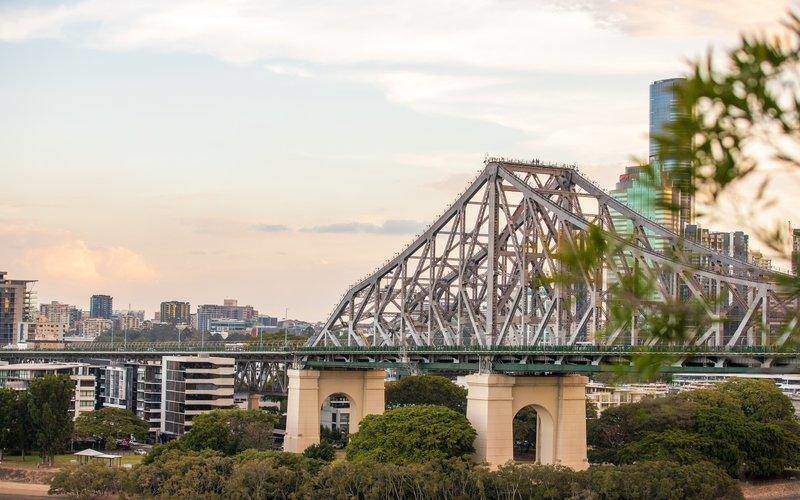


 Emma Duffy
Emma Duffy
 Harry O'Sullivan
Harry O'Sullivan
